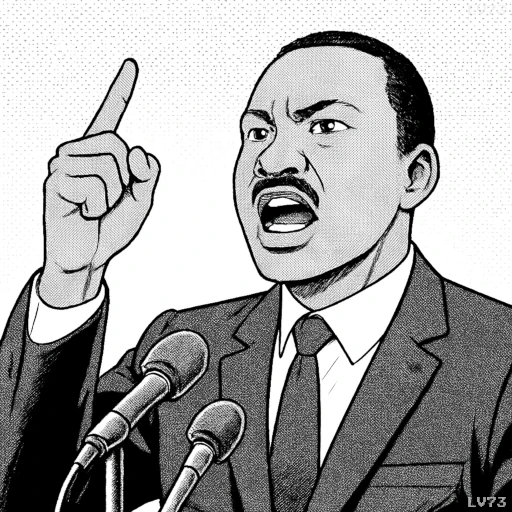“The principle of self-defense, even involving weapons and bloodshed, has never been condemned, even by Gandhi.”

- January 15, 1929 – April 4, 1968
- African American
- Pastor and civil rights leader
table of contents
Quote
“The principle of self-defense, even involving weapons and bloodshed, has never been condemned, even by Gandhi.”
Explanation
In this statement, King acknowledges the complex morality of self-defense, suggesting that even leaders who champion nonviolence, such as Gandhi, recognized that defending oneself or others is sometimes necessary and justified. King emphasizes that nonviolence as a guiding philosophy does not equate to passivity in the face of harm; rather, there are moments when defending oneself or others against aggression is both morally permissible and understandable.
Though King was a strong proponent of nonviolent resistance, he also understood the complexities of human survival and the instinct to protect oneself. His approach to nonviolence was rooted in the pursuit of justice and moral high ground, aiming to demonstrate that peaceful actions could achieve lasting change. However, he recognized that self-defense is a natural right and, in situations where survival is threatened, it becomes a deeply human response. This acknowledgment allowed King to balance his ideals with the realities of human experience, understanding that self-preservation is a fundamental principle respected across diverse philosophies.
Today, King’s perspective on self-defense remains relevant in discussions of moral responsibility, personal rights, and the ethical boundaries of nonviolence. While nonviolence is often celebrated as a higher ideal, this statement reminds us that self-defense is widely viewed as a justifiable response in the face of direct threats. King’s words suggest that the right to protect oneself does not undermine the principles of peace and justice but rather reflects the complexities of ethical decision-making in a world that is not always peaceful.
Would you like to share your impressions or related stories about this quote in the comments section?


